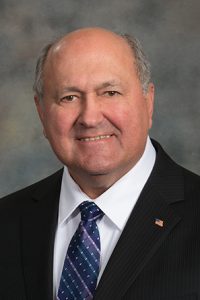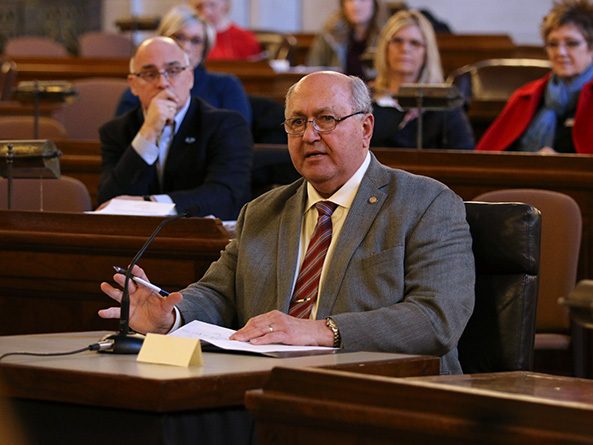Texting while driving would become primary offense
Members of the Transportation and Telecommunications Committee heard testimony March 4 on a bill that would make texting while driving a more serious offense.

LB620, introduced by Omaha Sen. Rick Kolowski, would change the offense of operating a handheld wireless device from a secondary to a primary offense, meaning a driver could be stopped by law enforcement for using a phone while driving.
After Iowa changed texting while driving to a primary offense, citations increased from 182 to 1,131 in one year, Kolowski said.
“We’ve all experienced someone trying to pay attention to their cell phone while driving, which can be frustrating and very dangerous,” he said. “Making texting while driving a primary offense will increase enforcement and save lives.”
Under the bill, a law enforcement officer, firefighter, ambulance driver or an emergency medical technician performing in his or her official capacity would be exempt from the prohibition on wireless devices. Similarly, a person operating a motor vehicle in an emergency would be exempt.
Eric Koeppe, president of the National Safety Council of Nebraska, testified in support of the bill. The National Safety Council ranked Nebraska 36th in roadway safety in 2017, he said, with 4,699 reported distracted-driving crashes.
“There is an increasing body of evidence that shows use of electronic devices while driving can lead to severe visual, manual and cognitive distractions, thus impairing that driver’s ability to process and respond to an immediate driving situation,” Koeppe said. “These distractions place a driver at 23 times greater risk of being involved in a serious or fatal injury crash.”
Retired Nebraska Highway Safety Administrator Fred Zwonechek also supported LB620. Nebraska is one of only four states that does not make texting while driving a primary offense, he said.
“One of the most effective laws at reducing traffic crashes today is trying to prevent people from using their cell phones while driving,” Zwonechek said. “There’s no question in my mind, based on all the studies I’ve seen … that enforcement is the most critical issue in reducing use.”
Opposing the bill was Spike Eickholt, representing the Nebraska Criminal Defense Attorneys Association. Nebraskans have the right to travel throughout the state without being arbitrarily stopped by law enforcement, Eickholt said.
“Nebraska has the right balance that has texting while driving … as a secondary offense,” he said. “We already have [laws] that criminalize negligent, careless and reckless driving.”
The committee took no immediate action on LB620.


